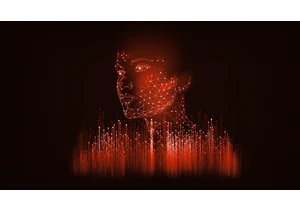What if an NFT were somehow linked to something as old-school as an actual physical product? This is the concept behind the Grid, a new platform where people can buy NFTs (nonfungible tokens) of digitized, sports memorabilia—an NBA jersey, say, or a player’s sneaker. Then, by accruing enough points through trading and selling those NFTs, they can wind up with the real jersey. It’s a concept that takes NBA Top Shot—which set off the craze for NFTs featuring basketball stars making jaw-dropping dunks and plays—a step further, and that Karvin Cheung says capitalizes on the “nostalgia factor” of sports collectibles. “NFTs are such a new phenomenon, but there’s not a lot of nostalgia built in,” Cheung says. “We are introducing a game-use memorabilia item along with a physical item to bridge that gap and bring nostalgia into the digital NFT space.” Cheung would know. As a senior executive at the trading-card company Upper Deck, Cheung created the Exquisite Collection, which pioneered the idea of packaging and presenting sports trading cards as a top-of-the-line experience. The collection launched in 2004 with a set of cards tied to a rookie named LeBron James. Today, the cards sell for upward of $5 million.
But as Cheung watched the sports-memorabilia world become co-opted by the metaverse over the past several months, he realized that something was missing: the kind of sentimental appeal that is fueled most powerfully by being able to touch and hold something, not just look at it on a screen. He is attempting to rectify this through his work with the Grid, where he is overseeing the creation of NFTs. Created by Sher Chaudhary, cofounder of Nostalgia Labs, the Grid is a new NFT platform where people can buy nonfungible tokens related to sports collectibles. Each NFT will be a kind of snapshot of those collectibles—a swatch of James’s jersey, say. But through buying and trading NFTs on the Grid, users will earn more points. When a certain number of points is reached, the actual artifact (the jersey)—which the Grid is procuring through deals with collectors—will be redeemed. Cheung adds that nostalgia is the key ingredient when it comes to why people collect. “My belief is that most people collect things because it brings them back to their childhood,” he says. “Whether it’s Pokémon cards or sports cards, usually with a collector that’s what they were into at a young age. A lot of times, people will say they started collecting again because there was always a card they wanted to own, or a toy, or a sneaker. That brings back memories. It’s the one item they no longer have, or they always wanted but could never get.” Cheung has spent his career in the trading-card industry, even opening up his own store at one point. He has designed hockey cards, basketball cards, baseball cards, and football cards. (He has even designed his own corporate title: the Architect.) His passion for trading cards dates back to his childhood in Toronto. He remembers being 6 years old and watching older kids throw hockey trading cards up in the air for fun. Cheung would make a mad dash to grab them as they fluttered to the ground, and recalls the time he finally succeeded. “I had to dive into a puddle to get it,” he says. “It was ripped, damaged. It was almost like a conquest.” Now he’s expanding into music, which is another passion (he was a deejay in his twenties). His new company, the Infinite, is creating collectible cards of musicians, with the idea that they will tap into a whole new community of rabid fans. For its debut collection, featuring The Weeknd, the Infinite partnered with Billboard, which pitched the Canadian pop-R&B sensation to commemorate the fact that his hit song Blinding Lights recently surpassed Chubby Checker’s The Twist as No. 1 on Billboard’s Hot 100 Songs of All Time list. Cheung says The Weeknd had full creative approval over the cards, which feature visuals from the Blinding Lights video. (The limited-edition cards can be ordered on The Weeknd’s website.) [Image: courtesy of The Infinite]
Jelentkezéshez jelentkezzen be
EGYÉB POSTS Ebben a csoportban

Lore isn’t just for games like The Elder Scrolls or films like The Lord of the Rings—online, it has evolved into something entirely new.
The Old English word made the s

Ben Sweeny, the salesman-turned-comedian behind that online persona Corporate Sween, says that bosses should waterboard their employees.
“Some companies drown their employees with



As I write this, the most pleasing sound is washing over me—gentle waves ebbing and flowing onto the shore. Sadly, I’m not actually on some magnificent tropical beach. Instead, the sounds of the s

The relentless hype around AI makes it difficult to separate the signal from the

I don’t know about you, but I tend to think about my favorite tech tools as being split into two separate saucepans: the “classic” apps we’ve known and relied on for ages and then the newer “AI” a
